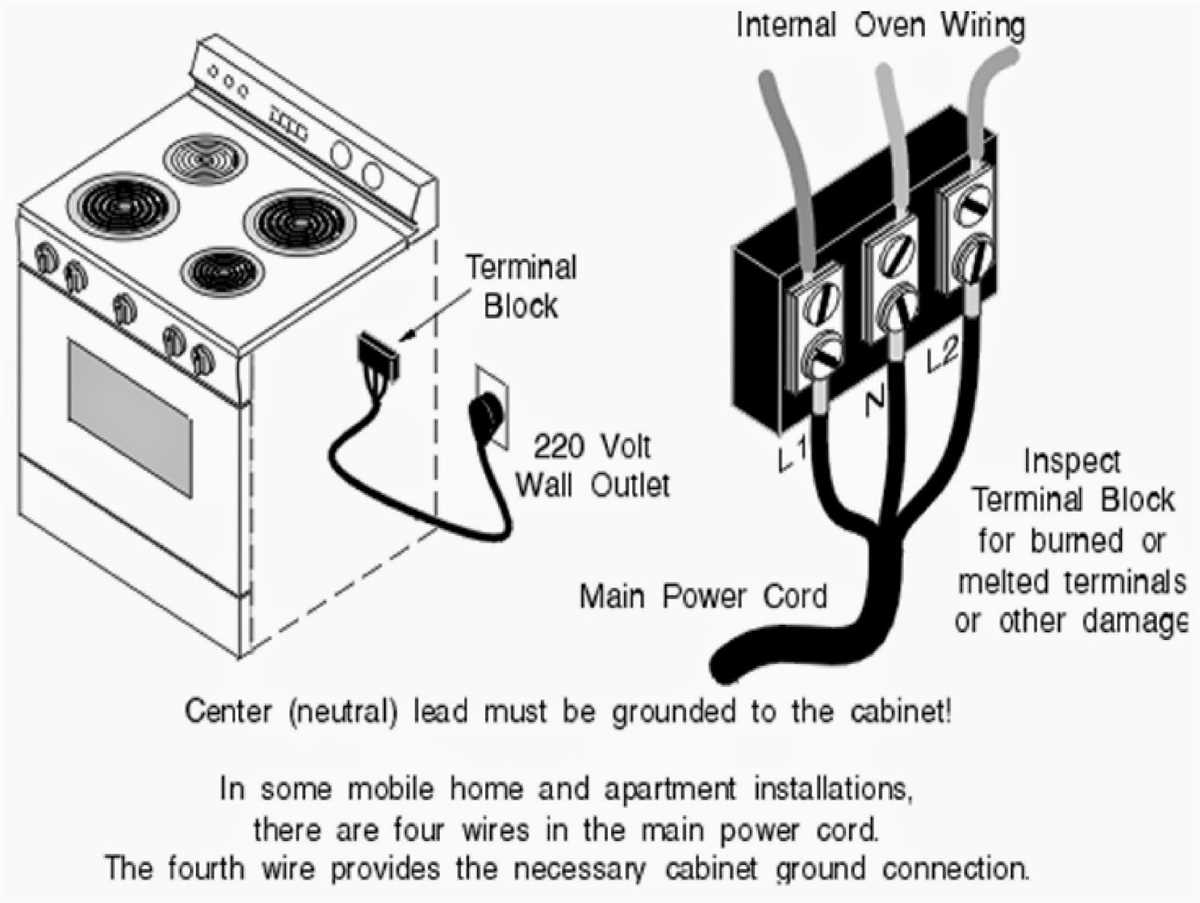
When it comes to installing a double oven in your kitchen, it’s important to understand the wiring requirements involved. A double oven requires more power than a single oven, so it’s essential to have the correct electrical setup to prevent any electrical issues or safety hazards.
One of the key components of the double oven wiring requirements is the electrical circuit. A double oven typically requires a dedicated 240-volt electrical circuit. This means that the circuit should only be used for the oven and nothing else. This ensures that the oven receives the necessary power without overloading the circuit.
Another important aspect of double oven wiring is the wire gauge. The wire gauge determines the amount of electrical current that can safely pass through the wires. For a double oven, it’s recommended to use a wire gauge of at least 8 AWG (American Wire Gauge) to handle the higher voltage and current requirements. Using a smaller gauge wire can lead to overheating and potential fire hazards.
Double Oven Wiring Requirements
When installing a double oven in your kitchen, it is important to understand the wiring requirements to ensure that the oven operates safely and efficiently. Double ovens typically require a higher voltage and amperage than standard single ovens, so it is essential to have the proper electrical setup in place.
Electrical Capacity: The first requirement for wiring a double oven is to have the necessary electrical capacity. Double ovens generally require a 240-volt electrical circuit to power both ovens simultaneously. This circuit should have a dedicated double-pole breaker with the appropriate amperage rating, which will depend on the specific model of the oven. It is crucial to consult the oven’s installation manual or contact the manufacturer to determine the correct amperage rating.
Wiring Size: Another crucial consideration is the wire size. The wiring should be capable of handling the load of both ovens without overheating or causing any electrical hazards. Generally, a double oven will require a wire size of 8 or 6 gauge, but it is essential to follow the manufacturer’s recommendations. It is recommended to hire a licensed electrician for the installation to ensure that the wiring is done correctly.
Grounding: Proper grounding is essential for safety and to protect against electrical shock. The double oven should be grounded to the electrical panel using a grounding wire. This wire should be appropriately sized and connected to the grounding terminal on the oven and the grounding bus bar in the electrical panel.
Location: The location of the double oven should also be taken into account when considering the wiring requirements. It is important to ensure that there is enough space around the oven for proper ventilation and to prevent overheating. The wiring should be routed in a way that allows for easy access and maintenance, and it should be kept away from sources of heat or water.
In conclusion, wiring a double oven requires careful consideration of electrical capacity, wire size, grounding, and the location of the oven. It is essential to follow the manufacturer’s recommendations and consult a licensed electrician to ensure a safe and effective installation. By meeting the necessary wiring requirements, you can enjoy the convenience of a double oven without compromising safety in your kitchen.
What is a double oven?
A double oven is a kitchen appliance that consists of two separate ovens stacked on top of each other, allowing for cooking multiple dishes at the same time. Each oven has its own controls and features, providing flexibility and convenience in preparing meals.
The upper oven is usually smaller and designed for everyday cooking, such as baking, roasting, and broiling. It is ideal for smaller portions or dishes that require higher temperatures. The lower oven, on the other hand, is larger and often equipped with additional features like convection cooking or a larger capacity, making it suitable for cooking larger meals or multiple dishes simultaneously.
Double ovens can be installed as a built-in unit, where they are seamlessly integrated into the kitchen cabinetry, or as a freestanding unit that can be placed anywhere in the kitchen. The installation requirements for double ovens can vary depending on the model and manufacturer, so it is essential to consult the manufacturer’s guidelines or a professional electrician when wiring the appliance.
Overall, a double oven offers convenience, versatility, and efficiency for cooking in the modern kitchen. With two separate cooking compartments, it allows for increased productivity in the kitchen, making it easier to prepare elaborate meals or multiple dishes for larger gatherings.
Choosing the Right Double Oven
When it comes to choosing the right double oven for your kitchen, there are several factors to consider. From size to features, it’s important to find an oven that meets your specific cooking needs. Here are some key things to keep in mind when making your selection.
Size and Capacity
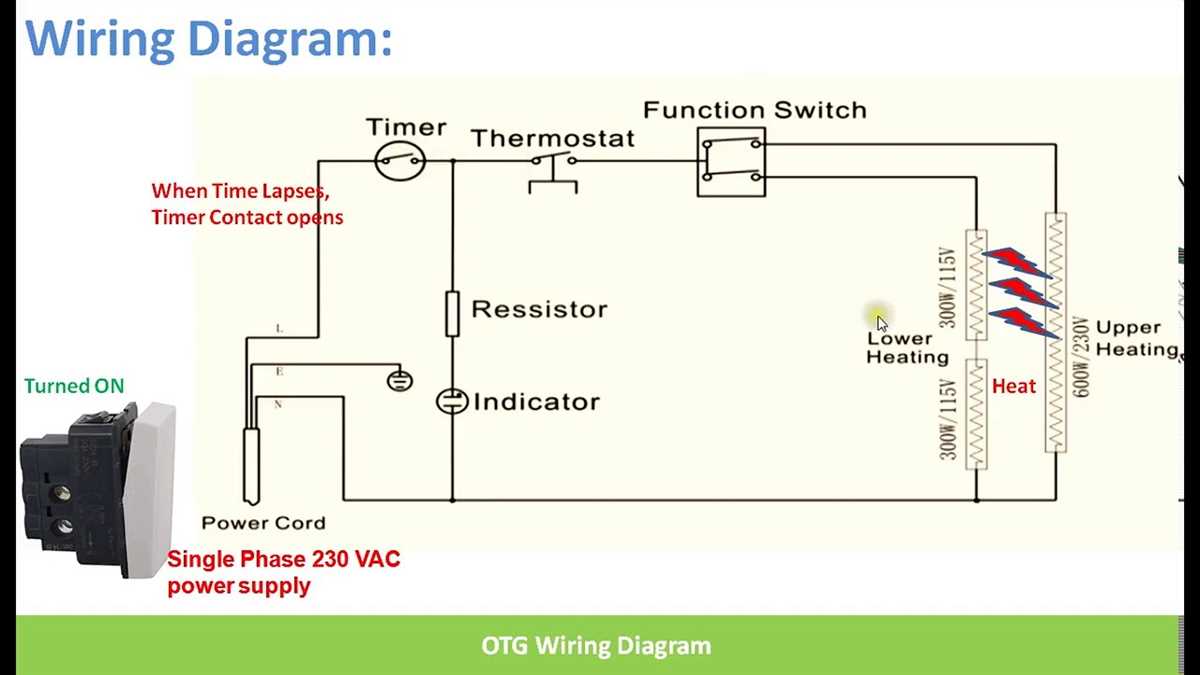
One of the first things to consider is the size and capacity of the oven. Double ovens come in various sizes, so it’s important to measure your kitchen space to ensure a proper fit. Additionally, think about your cooking habits and the number of people you typically cook for. If you frequently entertain or have a large family, a larger capacity oven may be ideal for your needs. On the other hand, if you have limited kitchen space or cook for a smaller household, a compact double oven may be more suitable.
Features and Functions
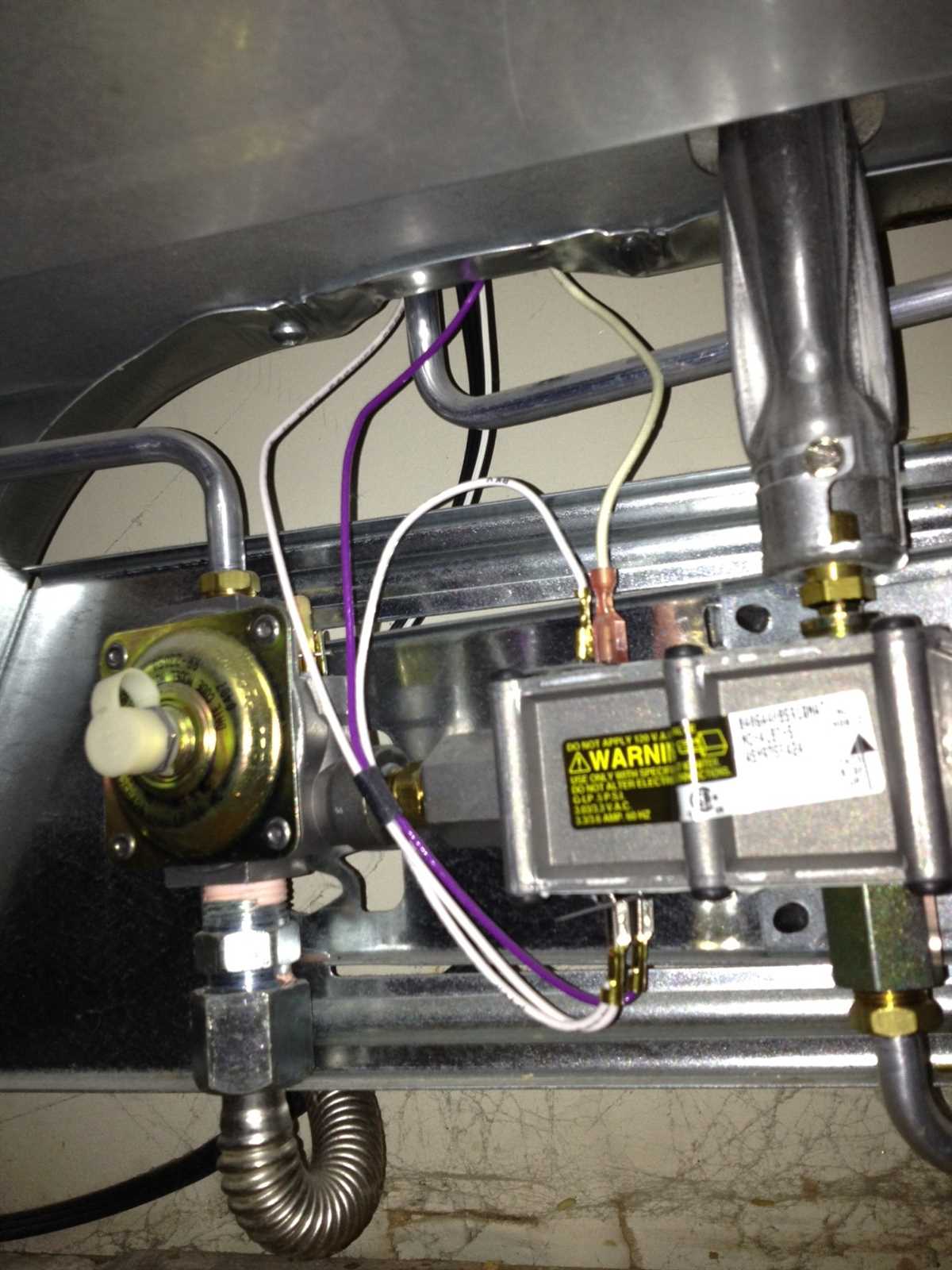
Double ovens come with a wide range of features and functions, so it’s important to consider what features are essential for your cooking style. Some common features to look for include convection cooking, self-cleaning options, and multiple cooking modes. Convection cooking uses a fan and exhaust system to circulate hot air, resulting in faster and more even cooking. Self-cleaning options can save you time and effort by automatically cleaning the oven’s interior. Additionally, having multiple cooking modes, such as bake, broil, and roast, allows for greater versatility in your cooking.
Energy Efficiency
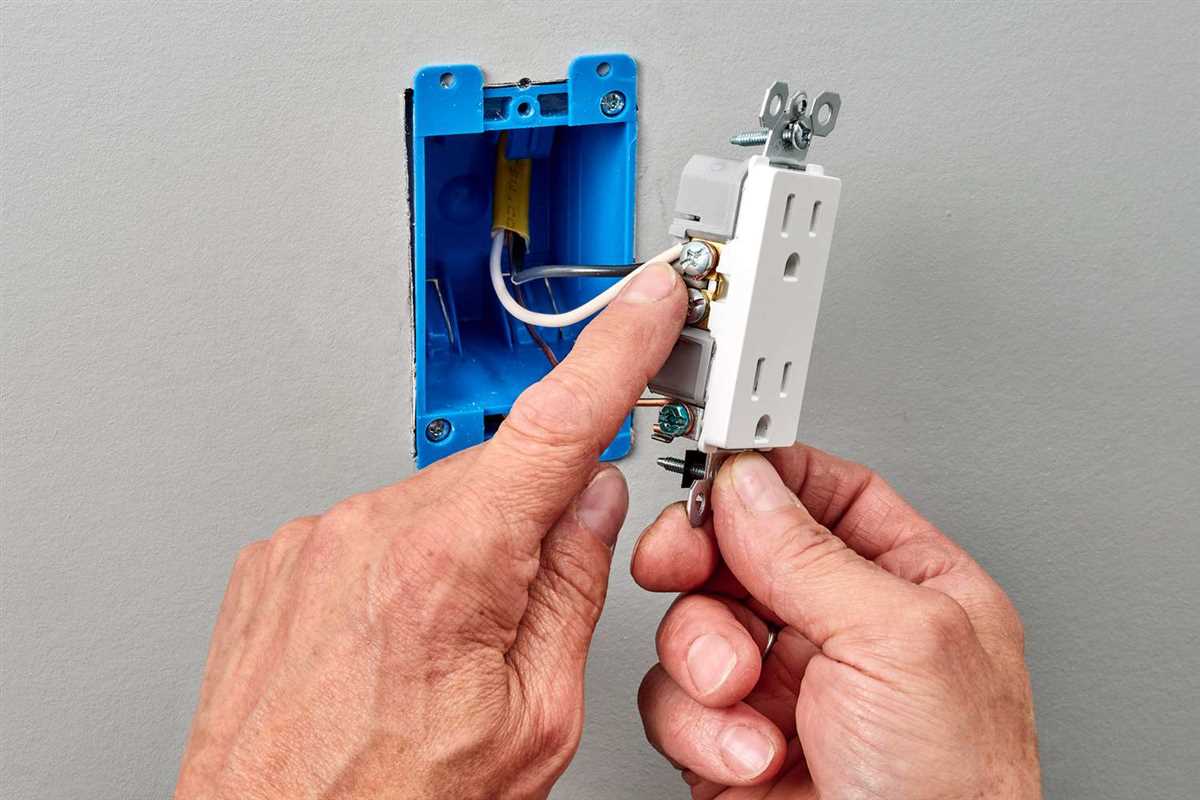
Energy efficiency is another important factor to consider when selecting a double oven. Look for ovens that are ENERGY STAR certified, as they meet strict energy efficiency guidelines. These ovens are designed to consume less energy and can help reduce your overall energy usage. Additionally, consider ovens with insulation and good sealing to prevent heat loss and improve energy efficiency.
Installation and Wiring Requirements
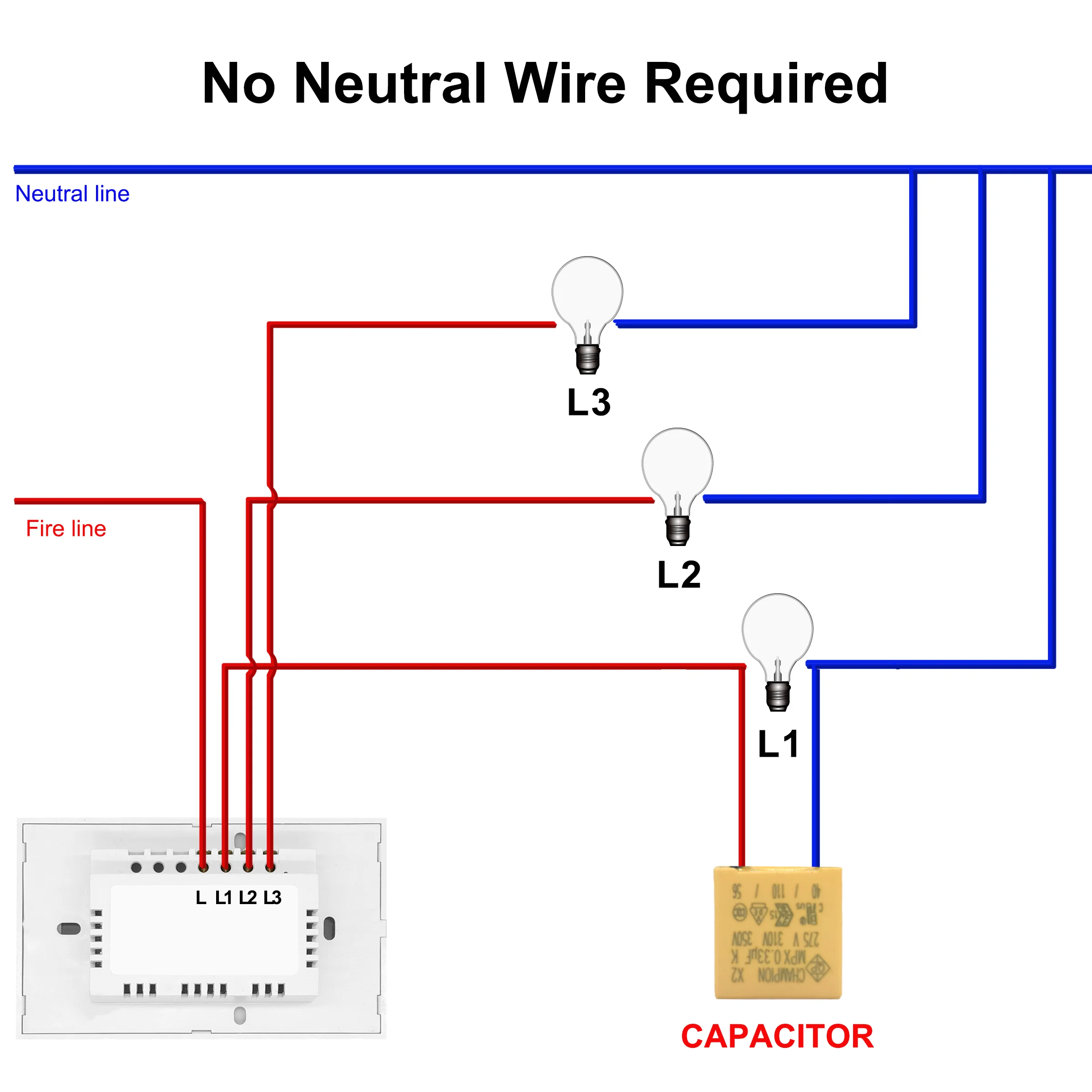
Before finalizing your choice, it’s crucial to ensure that your kitchen meets the necessary installation and wiring requirements for a double oven. Double ovens typically require a dedicated electrical circuit, as they draw more power than a single oven. Consult an electrician to determine if your kitchen’s wiring can support a double oven and to ensure that it is installed safely and correctly.
By considering factors such as size, features, energy efficiency, and installation requirements, you can choose the right double oven to enhance your cooking experience and meet your specific kitchen needs.
The electrical requirements for a double oven

When installing a double oven, it is essential to ensure that the electrical system in your home can meet the necessary requirements. Double ovens require a substantial amount of power to operate efficiently and safely, so it is crucial to understand the electrical needs before installation.
To begin with, a double oven typically requires a dedicated circuit. This means that the oven should have its circuit breaker in the electrical panel, separate from other appliances or outlets in the kitchen. A dedicated circuit ensures that the oven receives a consistent and uninterrupted power supply, reducing the risk of overloading and tripping the breaker.
Double ovens generally require a voltage of 240 volts and a current rating of 30 amps. This higher voltage and amperage are necessary to power the heating elements and other electrical components effectively. Therefore, before installing a double oven, it is essential to check if your home’s electrical system can support this requirement. You may need to consult an electrician to evaluate the existing wiring and make any necessary upgrades.
Another important consideration is the oven’s location and proximity to the electrical panel. The distance between the oven and the electrical panel should be taken into account to ensure that the wiring is of the appropriate length and gauge. If the oven is too far from the panel, additional wiring may be needed to reach the oven, which should be installed by a professional electrician.
In conclusion, the electrical requirements for a double oven are significant, and it is essential to ensure that your home’s electrical system can support them. It is advisable to consult with a professional electrician to evaluate the existing wiring, determine the necessary upgrades, and ensure a safe and efficient installation of your double oven. By meeting the electrical requirements, you can enjoy the benefits of a properly functioning and reliable double oven in your kitchen.
Installation considerations
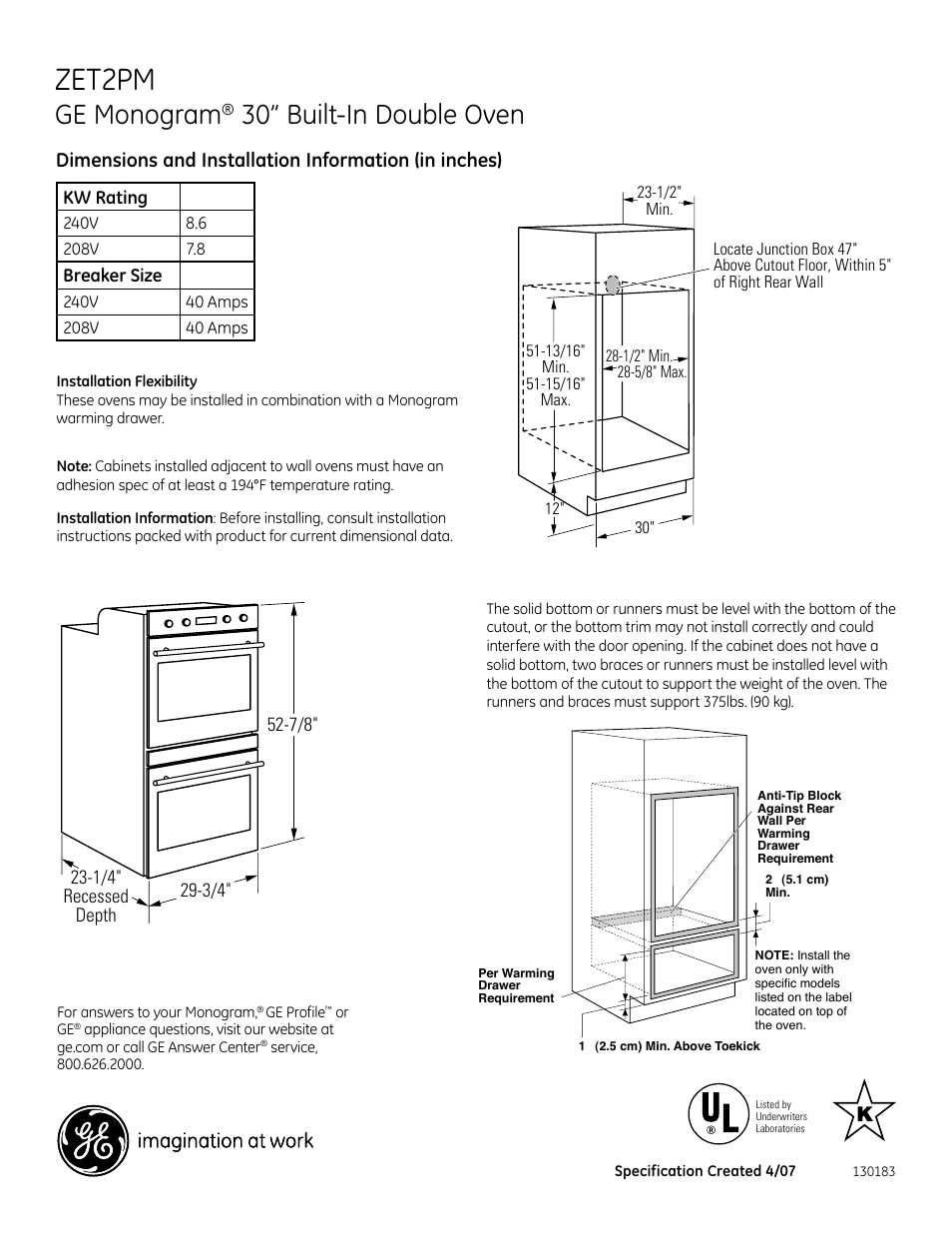
When installing a double oven, there are important considerations to keep in mind to ensure proper wiring and functionality. These considerations include the electrical requirements, space requirements, and ventilation needs.
Electrical requirements:
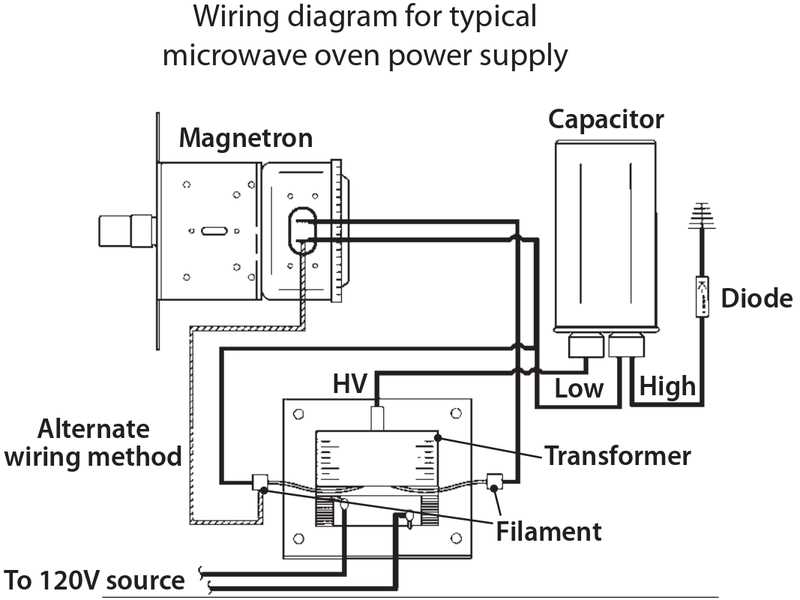
- Voltage: Double ovens typically require a 240-volt electrical circuit. It is important to check the manufacturer’s specifications for the specific voltage requirements of the oven being installed.
- Ampacity: Double ovens generally require a dedicated circuit with sufficient amperage to handle the oven’s power needs. The amperage requirement can vary depending on the oven’s size and features, so it is essential to consult the manufacturer’s instructions or an electrician.
- Wiring: The wiring should be in accordance with the National Electrical Code (NEC). It is recommended to use copper conductors and ensure proper grounding for safety.
Space requirements:
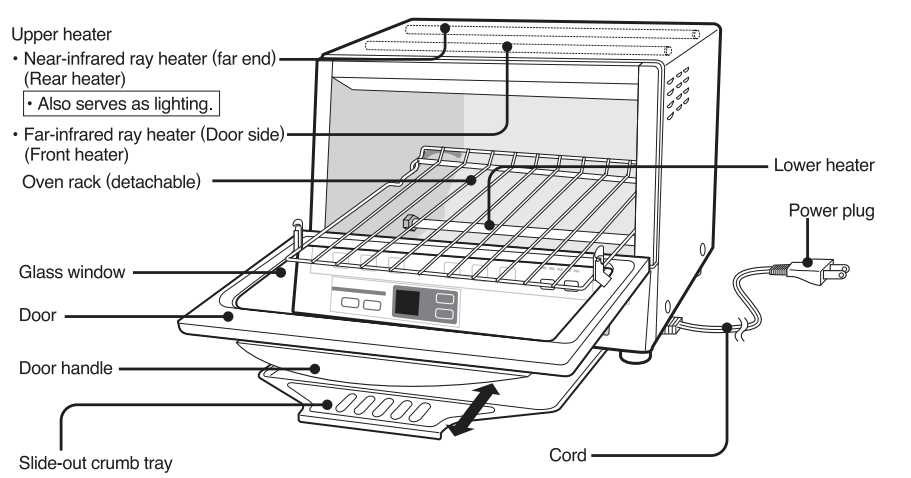
Double ovens typically require a larger space compared to single ovens. When planning the installation, ensure that there is enough space available for both the oven unit and any surrounding cabinetry or countertop. The manufacturer’s instructions will specify the exact space requirements, so it is important to adhere to these guidelines.
Ventilation needs:
Proper ventilation is crucial to ensure the oven operates efficiently and to prevent overheating. Check the manufacturer’s instructions for the specific ventilation requirements of the oven being installed. This may include recommendations for ventilation grilles, vents, or clearances from combustible materials.
It is highly recommended to consult a qualified electrician or follow the manufacturer’s instructions when installing a double oven to ensure compliance with electrical codes and safe operation. Failure to adhere to these considerations may result in improper installation, damage to the oven, or even potential safety hazards.
Hiring a professional electrician
When it comes to electrical work in your home, it’s always best to hire a professional electrician. While it may be tempting to try to tackle electrical projects yourself, hiring an experienced electrician will ensure the job is done safely and correctly.
Training and expertise: Professional electricians undergo extensive training and have the knowledge and expertise to handle all types of electrical work. They are familiar with the latest safety codes and regulations and can ensure that your electrical system is up to par.
Time and cost savings: Hiring a professional electrician can ultimately save you time and money. They have the right tools and equipment to get the job done efficiently and can quickly diagnose and fix any electrical issues. Additionally, they can prevent costly mistakes that could occur if you were to attempt the work yourself.
Safety first: Electrical work can be dangerous, and attempting to do it yourself without the proper knowledge and equipment puts you at risk of injury or even fire hazards. Professional electricians know how to handle electrical systems safely, reducing the risk of accidents or electrical faults.
Insurance and warranties: Hiring a professional electrician gives you peace of mind knowing that the work is insured and guaranteed. If anything goes wrong or needs to be fixed, you can rely on their expertise and the warranties they offer.
Compliance and permits: Electrical work often requires permits and must comply with local building codes. Professional electricians are familiar with these requirements and can ensure that all necessary permits are obtained and the work is done in compliance with regulations.
In conclusion, hiring a professional electrician is essential when it comes to electrical work in your home. Their training, expertise, and commitment to safety will ensure that your electrical system is installed or repaired correctly, saving you time, money, and potential risks.
Maintaining and Troubleshooting Double Oven Wiring
Proper maintenance and periodic troubleshooting of double oven wiring are essential to ensure the safe and efficient operation of your appliance. Here are some important tips to consider:
Maintenance:
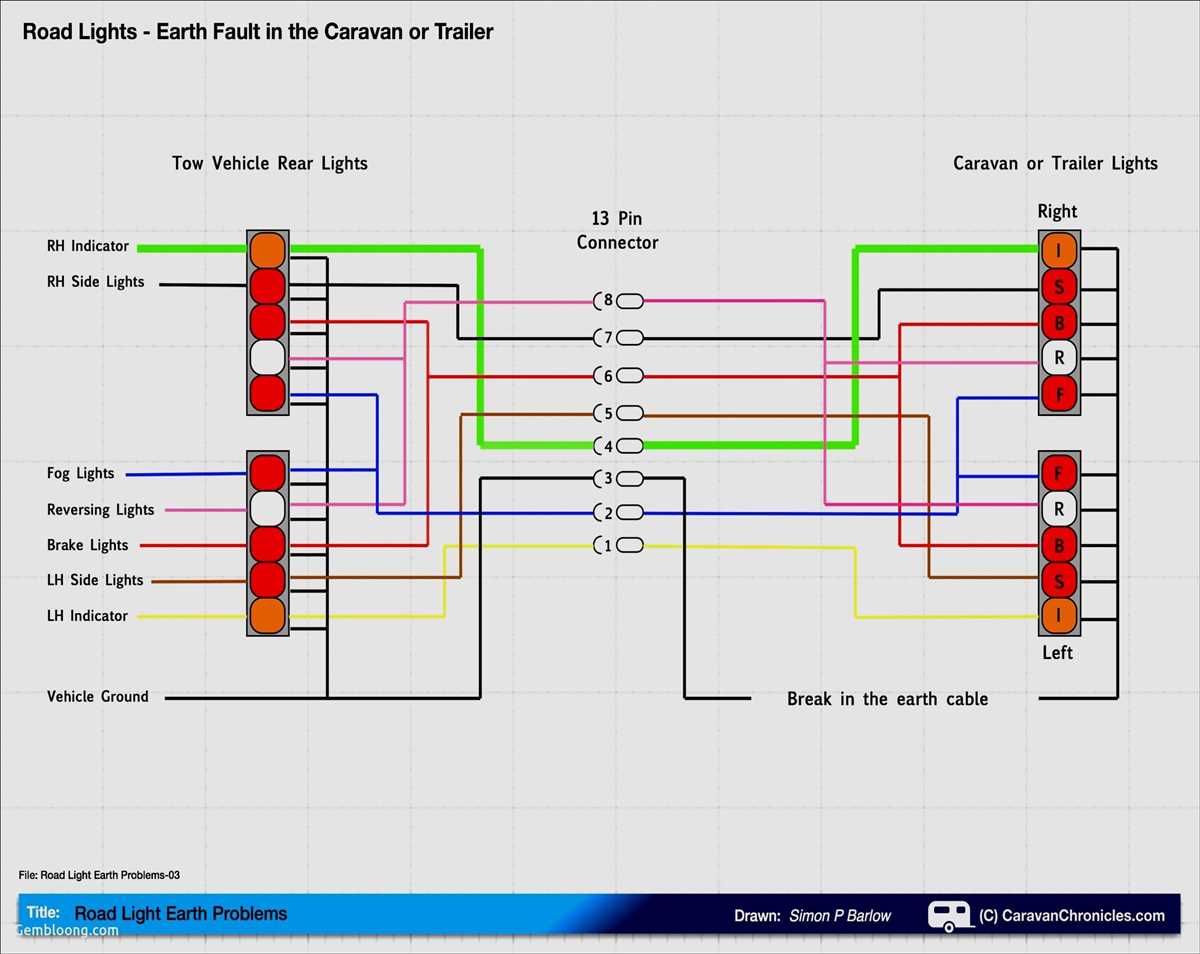
- Regularly inspect the wiring connections for any signs of damage, such as fraying or exposed wires. If any issues are found, they should be addressed immediately by a qualified electrician.
- Clean the oven regularly to prevent debris from accumulating around the electrical components. Use a mild detergent and a damp cloth, making sure to avoid contact with any wiring.
- Ensure that the oven is properly grounded to minimize the risk of electrical shocks. Consult the manufacturer’s guidelines or a professional electrician for specific instructions on grounding.
- Check the electrical outlet and circuit breaker regularly to ensure that they are in good working condition. Faulty outlets or breakers can cause the oven to malfunction or pose a safety hazard.
Troubleshooting:
- If the oven does not turn on, check the power supply by testing another appliance in the same outlet. If the outlet is functioning correctly, the issue may lie with the oven’s wiring or control panel. In this case, it is recommended to contact a qualified technician for further inspection and repair.
- If the oven experiences frequent power outages or trips the circuit breaker, it may indicate an overloaded circuit. Check the electrical load of the oven and other appliances sharing the same circuit. Consider redistributing the load or contacting an electrician to install a dedicated circuit for the oven.
- If the oven heats unevenly or does not reach the desired temperature, it may indicate a problem with the heating elements or temperature sensors. Inspect the elements for signs of damage or replace them if necessary. For more complex issues, it is advisable to seek professional assistance.
By following these maintenance tips and addressing any troubleshooting concerns promptly, you can ensure the longevity and safe operation of your double oven wiring.
Q&A:
What should I do if my double oven is not heating up?
If your double oven is not heating up, there are a few possible reasons. First, check to make sure that the oven is plugged in and getting power. You can also try resetting the circuit breaker or checking the fuse. If the oven is getting power but still not heating, there could be an issue with the heating element or thermostat, and you may need to call a professional for repairs.
Why is my double oven making a strange noise?
If your double oven is making a strange noise, it could be due to a few different factors. One possible cause is a problem with the fan motor, which may be failing or has a loose connection. Another possibility is that there is a foreign object stuck in the fan blades, causing them to make noise. In either case, it is best to turn off the oven and call a professional to diagnose and fix the problem.
Can I replace the heating element in my double oven myself?
While it is possible to replace the heating element in a double oven yourself, it is generally recommended to hire a professional for this task. Replacing a heating element can be complex, and if not done correctly, it can cause further damage to the oven or even create a safety hazard. A professional will have the knowledge and tools necessary to safely and effectively replace the heating element.
What can cause the temperature in my double oven to be inconsistent?
There are a few possible causes for inconsistent temperature in a double oven. One common cause is a faulty thermostat, which may need to be recalibrated or replaced. Another possibility is that the oven’s heating element or fan motor is malfunctioning, causing uneven heat distribution. Additionally, if the oven’s door seal is worn or damaged, it can let heat escape and lead to inconsistent temperatures. It is best to have a professional inspect and repair the oven to determine the exact cause of the issue.
Why is my double oven not turning on at all?
If your double oven is not turning on at all, there are a few potential reasons. First, check to make sure that the oven is properly plugged in and that the circuit breaker or fuse has not tripped. If the oven is getting power but still not turning on, there could be an issue with the control board or a blown fuse inside the oven itself. In this case, it is recommended to call a professional for repairs, as working with electrical components can be dangerous.
What should I do if my double oven is not heating up?
If your double oven is not heating up, there are a few troubleshooting steps you can take. First, make sure that the oven is properly plugged in and that the circuit breaker has not tripped. You can also try resetting the oven by turning off the power for a few minutes and then turning it back on. If these steps do not solve the issue, it is recommended to call a professional electrician to inspect and fix the wiring.
Can I install a double oven myself?
Installing a double oven can be a complex task and it is recommended to hire a professional electrician to do the job. They will ensure that the wiring is installed correctly and that it meets all safety standards. Additionally, they will be able to troubleshoot any issues that may arise during the installation process.